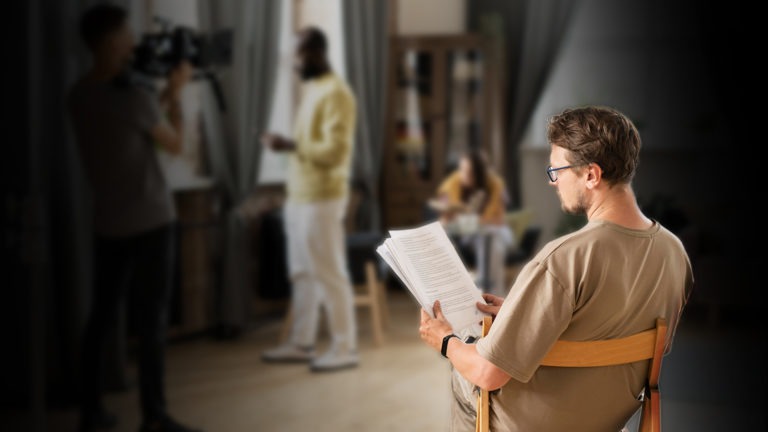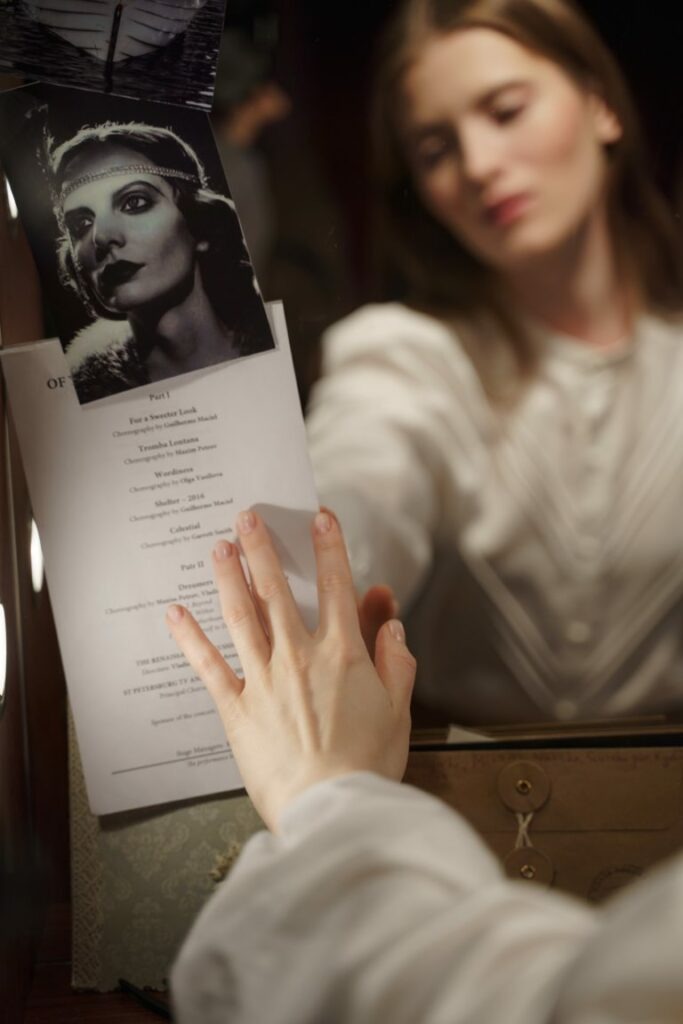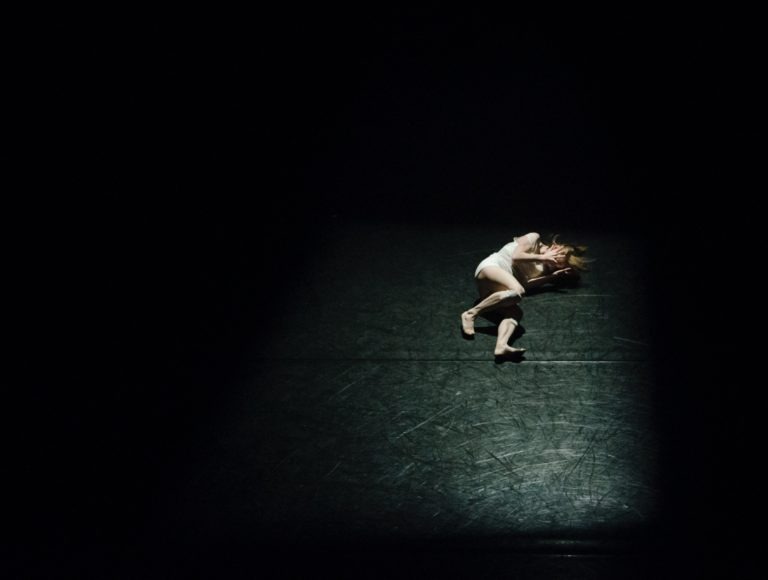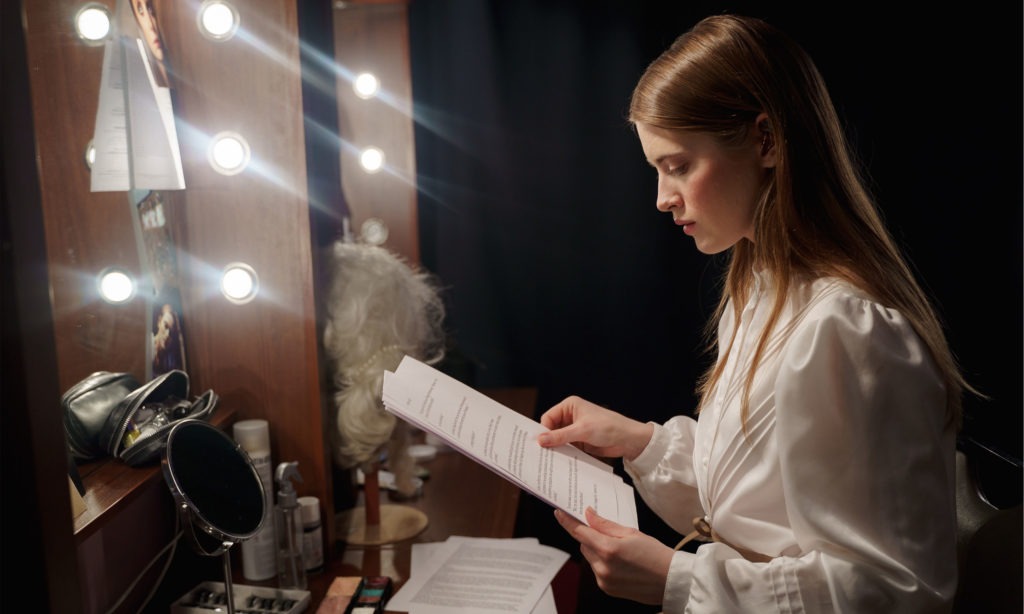Speak to any experienced casting agents in Australia and they’ll tell you that when it comes to acting, you’ll never stop learning. From portraying the right emotions to nailing an accent, there are just so many skills to master. That’s why all the very best actors set aside a portion of their day for practicing their acting techniques especially when they’re not currently working on a project.
No, we’re not talking about simply rehearsing lines. We’re talking about techniques that will help you slip into the right mindset when acting, tap into your emotions, and even help you with your physical movements.
Best of all, you can do all of these alone.
So if you’re serious about acting and want to keep those skills sharp, try to integrate some of these techniques into your daily routine.

Warm up your cold reading
Cold reading is when a casting director asks an actor to read a script that they haven’t prepared for or even seen before. It’s a little trick they use to see how an actor reacts and adapts to unexpected situations. In this instance though, we’re going to use cold reading to simply get you speaking out loud and getting those creative juices flowing.
All you need to do is grab a newspaper, a book, or have a look online for some cold reading scripts—there are literally dozens of websites online with lists of old scripts. Once you have your piece, you simply read it out loud, as you would if it were a script and you were auditioning for a part. While it may seem silly to sit reading a local newspaper report on the theft of some garden gnomes out loud, this is a great exercise for giving your voice a workout.

Play the waiting game
This is a fantastic exercise that covers an acting skill that is very rarely talked of—how we behave when we’re not actually doing anything.
If you watch a live amateur theatre performance you may notice how members of the cast who have no dialogue in a scene can sometimes look awkward or have a tendency to over-exaggerate their facial expressions. This is what this exercise helps you avoid.
What you do is imagine that you are waiting at a bus stop, in a waiting room, or on a station platform. Then imagine where you are going and what you are waiting for. Then simply act as you would while waiting. You can even add other elements to the scene such as the fact that you are running late just to give you a little more to work with.
The key here is to be yourself and act naturally, but you must remain in the scene for the duration of the exercise.
Breathe in, breathe out
The voice is hugely important in acting and how you breathe can have a huge impact on how you speak. This simple exercise will help you control your breathing while speaking which in turn helps you enunciate your words clearly.
The first is the ‘Hum’ exercise.
Take a good deep breath and, as you exhale slowly, begin to hum. Repeat this at least five times.
The second is the ‘Ha’ exercise.
Stand straight (good posture is important) and put your hands on your abdomen. As you breathe in, try to expand your stomach. As you exhale in one quick breath say the word ‘Ha’ pushing in your abdomen on each exhale. Repeat this at least five times.

Try a tricky twisting tongue twister
Hard to say isn’t it? Tongue twisters just like the ones you heard as a child are a great way to help with your articulation or, in other words, forming clear and distinct sounds when speaking.
Try to memorize some of these to use when necessary:
Unique New York. Unique New York. You know you need unique New York.
She makes a proper cup of coffee in a copper coffee pot.
I thought a thought. But the thought I thought wasn’t the thought I thought I thought.
Twixt this and six thick thistle sticks.
I need a box of biscuits, a box of mixed biscuits, and a biscuit mixer.
She sells seashells by the seashore, and the shells she sells are seashells.
You can, of course, find a lot more online, but there’s no need to learn too many. The ones listed above should be enough to keep your articulation on point.

Make a home movie
And by that we mean record yourself.
Self taping has grown in popularity over the last two years and any actor worth their salt should know how to create a professional self tape.
With that in mind, we’re going to assume that you already have the right equipment and environment to record a self tape in your home.
Grab a script that you are familiar with and act out a scene. You can even just practice your monologue, but we suggest that you challenge yourself from time to time and try to record scenes that involve a whole range of emotions.
Once your recording is done, sit down and watch it. Be critical of yourself and see where you can improve your performance but also note the things that you do well. There are so many things that you may pick up on when watching yourself on film that you won’t notice when acting. So even though this exercise may take a little longer, it’s crucial that you make it a part of your routine. Perhaps not every day, but at least once or twice a week.
And there you have it, five simple acting techniques and activities that you can easily practice at home. Just keep in mind that it’s not enough to do these every once in a while. To really keep your skills sharp, you’ll need to create a weekly schedule where you practice at least one or two of these exercises each and every day.
Whether you’re new to the world of acting or you’re an experienced actor looking for professional representation, then you’re in luck because Hunter Talent wants to hear from you. Contact us today or fill out our application form and one of our team of casting agents across Australia will be in touch.







